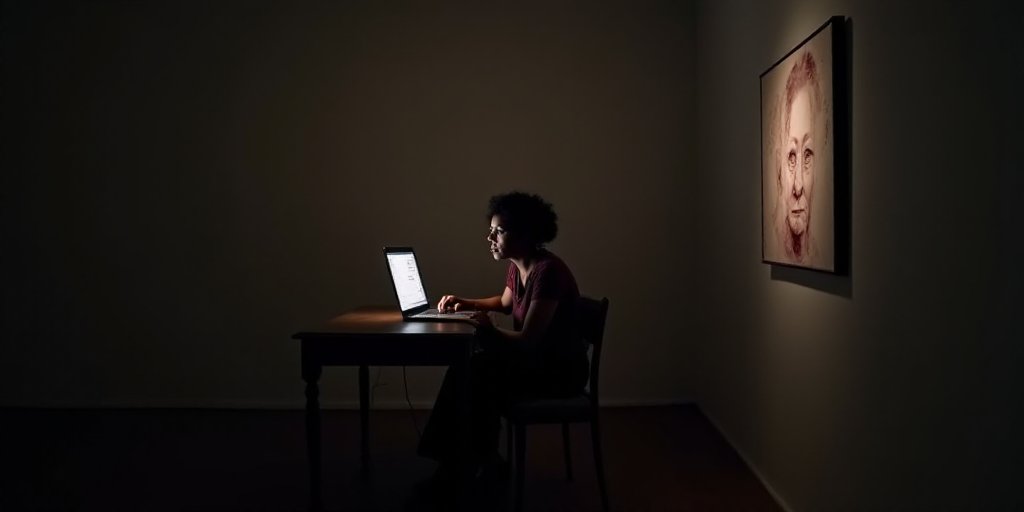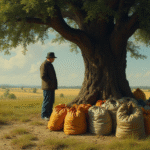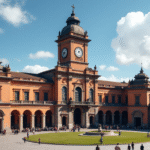An Artistic Collaboration Supported by Harvard
Over the course of five years, writer Valeria Luiselli, composer Leonardo Heiblum, and audiovisual producer Ricardo Giraldo embarked on a mission to document the sounds of the region straddling the US-Mexico border. Their project, titled “Echoes from the Borderlands,” aims to capture the auditory landscape of this heavily trafficked frontier.
The Project’s Origins and Recent Presentation
This collaborative effort, supported by Harvard’s Committee on the Arts, has resulted in a rich tapestry of sounds, reflective texts, and visuals that span approximately 24 hours. A condensed version was recently presented at the Hay Festival Querétaro, captivating audiences in the Mexican state’s capital and surrounding areas.
Valeria Luiselli, currently a visiting professor in Ethnicity, Indigenous Studies, and Migration at Harvard University, spearheaded this initiative alongside her esteemed colleagues.
A Sonic and Visual Exploration
The presentation in Querétaro offered a meticulously curated selection of sounds gathered along half the border route, from the coastal regions of Tijuana-San Diego to Ciudad Juárez-El Paso. The audience experienced a concert of unconventional instruments, each recording originating from over 2,600 kilometers away.
Luiselli’s travelogue intertwined with Heiblum’s orchestrated soundscape and Giraldo’s evocative imagery, creating an immersive performance that transcended mere archive exhibition.
Capturing the Border’s Symphony
The project encompasses a diverse array of sounds, from the haunting songs of migrating whales off the coast of Tijuana-San Diego to the fury of storms, the rushing waters of the Rio Bravo, and the cacophony of border crossings. Geophones captured the land’s voice, documenting its stories through vibrations.
“The piece begins beneath the sea, in Tijuana-San Diego, with whale migration. It ascends to the shore and traverses California, documenting copper mines in Arizona, the Tohono O’odham Nation adjacent to a military testing site, New Mexico’s Apache Mescalero Reserve near another testing zone, and the birthplace of the first US nuclear bomb before Hiroshima,” Luiselli explained in a press conference.
Challenges and Political Climate
The team primarily recorded from the US side of the border, with fewer recordings from Mexico’s side, except at border crossing points like Tijuana, Mexicali, and Ciudad Juárez.
Luiselli acknowledged the team’s limited travel on the Mexican side due to safety concerns. Additionally, the political climate and heightened anti-migrant rhetoric pose challenges for Mexican residents in the US.
Luiselli, a long-time New York resident, contemplates publishing her upcoming book in Mexico first due to the current political climate’s impact on migrant communities and her desire to reach a broader, more receptive audience.
Meet the Creators
Valeria Luiselli
- “Desierto sonoro”
- “Los ingrávidos”
- “La historia de mis dientes”
- “Los niños perdidos”
Leonardo Heiblum
- Oscar-winning composer; sound and music for films such as:
- “Desierto adentro”
- “Cartas a distancia”
- “El lugar más pequeño”
- “Tempestad”
- “En el hoyo”
Ricardo Giraldo
- Programmer for:
- Festival Internacional de Cine Contemporáneo de la Ciudad de México (FICCO)
- Ambulante Gira de Documentales
- Director of Podcasts at La Corriente del Golfo
Key Quotation
“Unfortunately, we haven’t been able to travel freely through Mexico by road due to reasons that, as journalists, you are well aware of; that is, the dangers of certain roads.” – Valeria Luiselli, author
“Unfortunately, we haven’t been able to travel freely through Mexico by road due to reasons that, as journalists, you are well aware of; that is, the dangers of certain roads.” – Valeria Luiselli, author.






